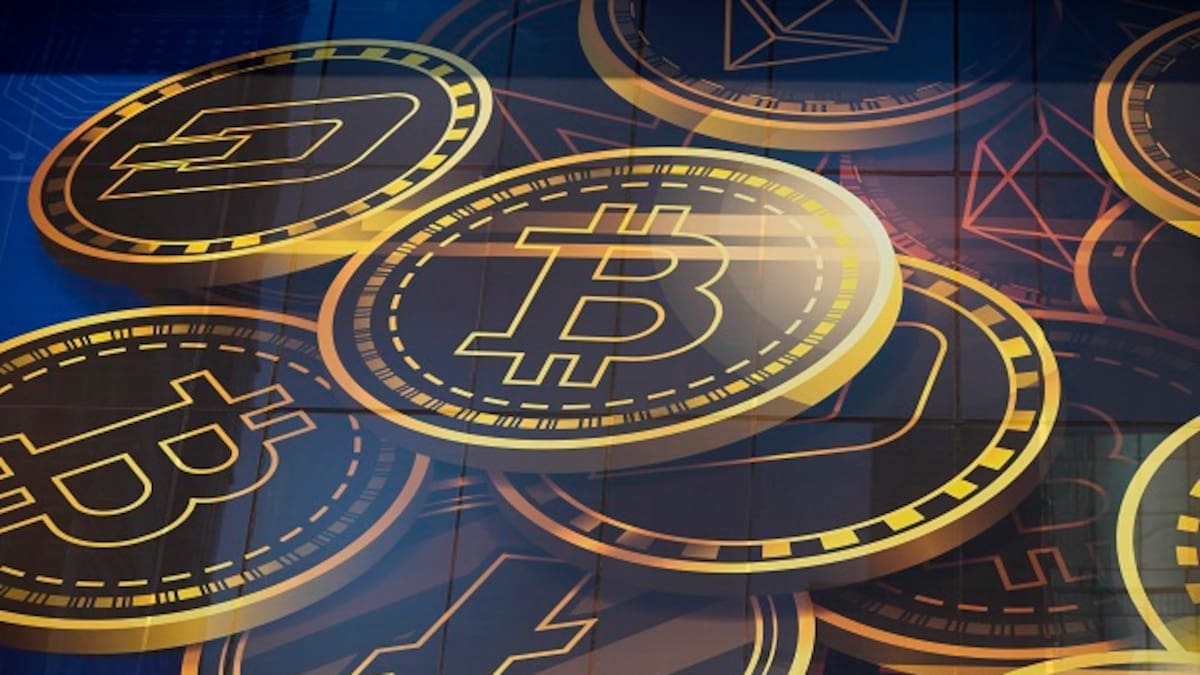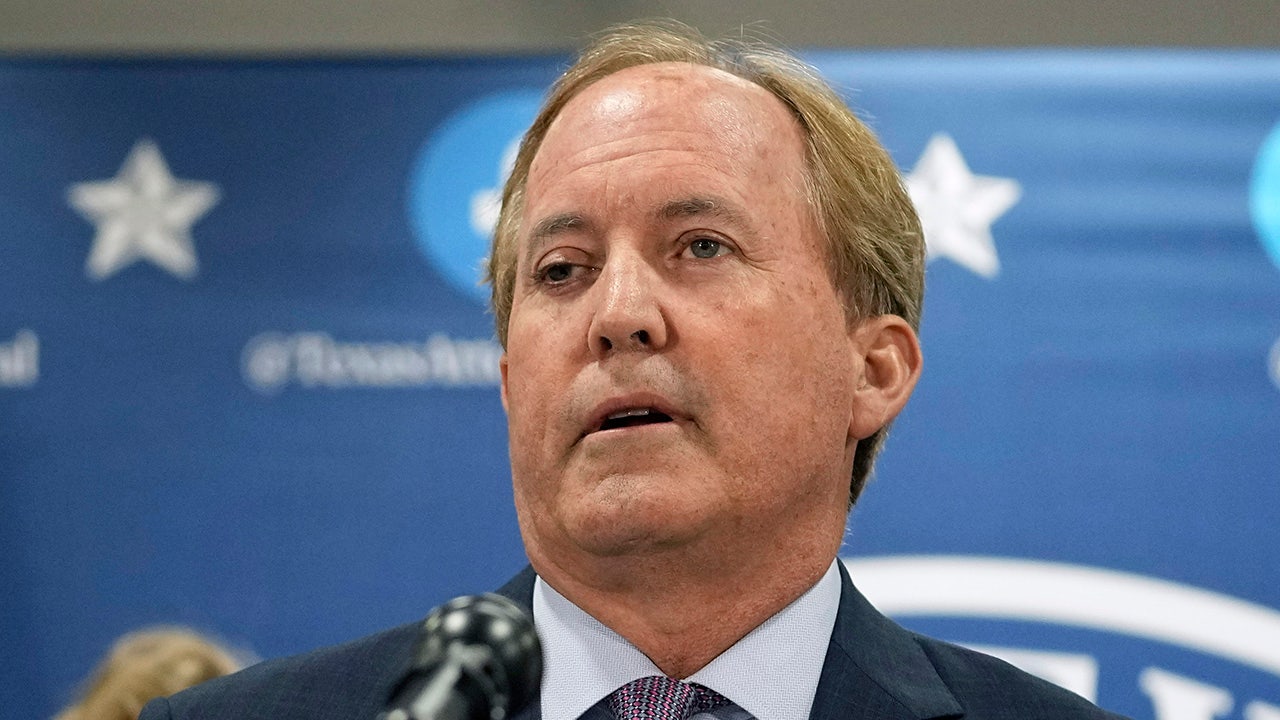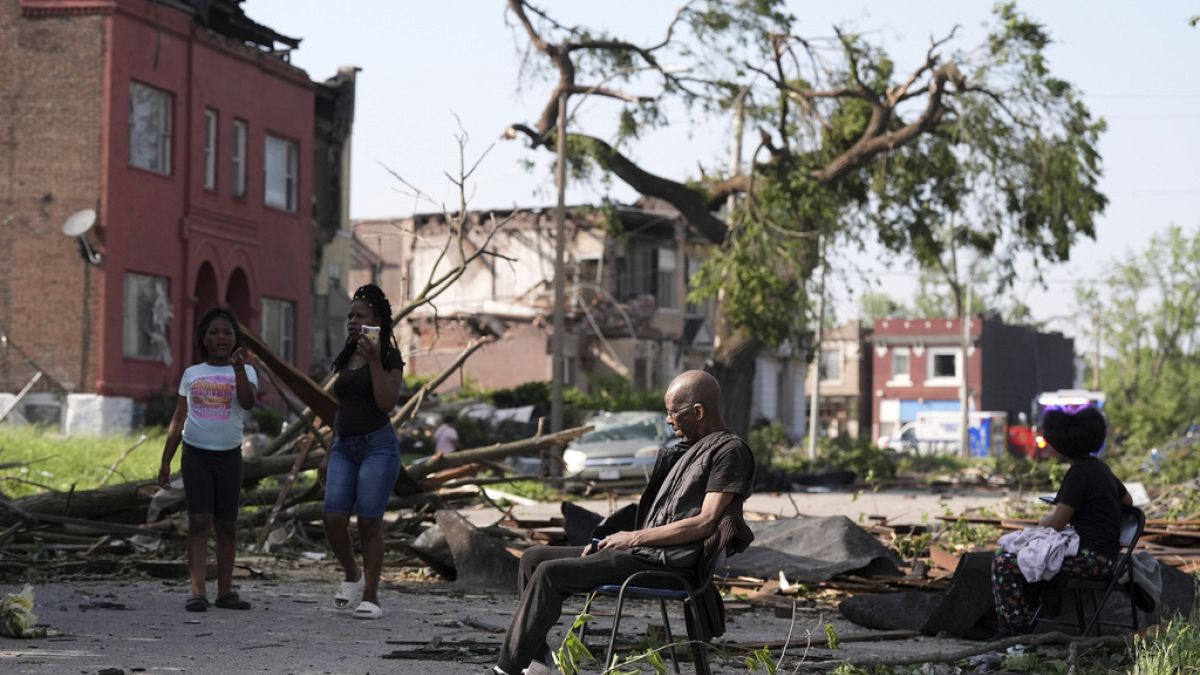- Leaders, global organisations, civil society meet in Paris
- Aim to forge a consensus on debt, climate financing
- Development banks urged to risk capital to boost lending
Finance
Leaders head to Paris to give impetus for new global finance agenda
/cloudfront-us-east-2.images.arcpublishing.com/reuters/5N2SRTGHLFM63K5FGV55KPNLNM.jpg)
[1/2]Activists with Glasgow Actions Team and 350.org hold a floating “invisible banner” that will appear to transform the Eiffel Tower into a wind turbine to welcome world leaders on the eve of the Summit for a New Global Financial Pact, at the Trocadero Square in Paris, France, June 21, 2023. The…
PARIS, June 22 (Reuters) – France hosts a summit on Thursday, including African leaders, China’s prime minister and Brazil’s president, to boost crisis financing for low-income countries, reform post-war financial systems and free up funds to tackle climate change.
The “Summit for a New Global Financial Pact”, held in the French capital aims to forge a top-level consensus on how to progress a number of initiatives currently struggling in bodies like the G20, COP, IMF-World Bank and United Nations.
It aims to create multifaceted roadmaps that can be used over the next 18-24 months, ranging from debt relief to climate finance. Many of the topics on the agenda take up suggestions from a group of developing countries, led by Barbados Prime Minister Mia Mottley, dubbed the ‘Bridgetown Initiative’.
“The international financial system is no longer adapted to face financing challenges the world faces today so this is an opportunity to get everyone around the table,” said a senior French diplomat.
The coronavirus pandemic pushed many poor countries into debt distress as they were expected to continue servicing their obligations in spite of the massive shock to their finances.
Africa’s debt woes are coupled with the dual challenge faced by some of the world’s poorest countries of tackling the impacts of climate change while adapting to the green transition.
Wealthy nations have yet to come good on climate finance that they promised as part of a past pledge to mobilize $100 billion a year, a key stumbling block at global climate talks.
Though binding decisions are not expected, officials involved in the summit’s planning said some strong commitments should be made about financing poor countries.
Nearly eighty years after the Bretton Woods Agreement created the World Bank and International Monetary Fund (IMF), leaders aim to squeeze more financing from multilateral lenders for the countries that need it most.
In particular, there should be an announcement that a $100 billion target has been met that will be made available through the International Monetary Fund for vulnerable countries, officials said.
Leaders are set to back a push for multilateral development banks like the World Bank to put more capital at risk to boost lending, according to a draft summit statement seen by Reuters.
Some leaders are expected to lend their weight to long-stalled proposals for a levy on shipping industry emissions ahead of a meeting next month of the International Maritime Organization, officials said.
French Officials say the summit will not aim to bring up the conflict between Ukraine and Russia, which has had an indirect impact on Africa and left some leaders from emerging countries, including Brazilian President Luiz Inacio Lula da Silva unwilling to distance themselves from Moscow.
However, just a few days after the leaders of Senegal, Egypt, Zambia, Uganda, Congo Republic, Comoros and South Africa launched a mediation trip to Ukraine and Russia, French President Emmanuel Macron is likely to use the summit for feedback given most of the same presidents will be attending.
Reporting by John Irish; editing by Philippa Fletcher
Our Standards: The Thomson Reuters Trust Principles.

Continue Reading
Finance
How to block the financial scammers on social media

Unlock the Editor’s Digest for free
Roula Khalaf, Editor of the FT, selects her favourite stories in this weekly newsletter.
Online scams are big business. In the EU, according to the most recent figures, online scammers defrauded consumers out of €4.3bn in 2022. Increasingly, they use sophisticated adverts, including AI-generated “deepfakes” of figures ranging from Elon Musk to the UK personal finance expert Martin Lewis, to lure individuals into disclosing personal data or investing in fraudulent schemes. The vehicle is often social media platforms, which profit indirectly from carrying the ads. No business, least of all some of the world’s most powerful, should be able to profit from fraud on this scale.
Though mechanisms are improving for reimbursing victims, generally by the banking sector, the harm done by such frauds is huge. It includes not just the immediate losses and stress to victims and their banks, but also the erosion of trust in respectable sources of information and the financial industry.
Getting fraudulent material taken down, however, can be a game of “whack a mole” — as the Financial Times discovered when deepfake ads were found on Meta platforms apparently showing its columnist Martin Wolf promoting fraudulent investments. The FT has established that these fakes were seen by millions of users; many may have lost money as a result. As soon as one ad was removed, others popped up from different accounts, with Meta’s systems seemingly unable to keep up, though they do now seem to have been stopped.
Circulation of fraudulent, indeed criminal, material cannot be justified. Given how hard it is to stamp out advertising after the fact, though, this is a case where prevention is better than cure. Social media should have a legal duty not to provide ad space to fraudsters in the first place. They ought to be expected to “know their customers” and be held liable, with proper enforcement and tough penalties, if they fail to block dissemination of fraudulent ads.
The EU is considering legislation on those lines. Member states are discussing proposals from Brussels to introduce a right to automatic reimbursement from PayPal, Visa, Mastercard and banks for customers defrauded by scammers. But an amendment submitted by the Irish finance ministry, and gaining traction in other EU capitals, would go further — by legally requiring online platforms to check that an advertiser is authorised by a regulator to sell financial services, and block it if not.
Brussels frets that the amendment would conflict with a provision in the EU’s Digital Services Act that online platforms are not required to conduct broad-based monitoring of content. There may be squeamishness over antagonising Donald Trump, who wants to defang EU regulation of US tech firms.
Yet having to verify whether financial advertisers are authorised does not constitute large-scale monitoring, and would only be required of very large online platforms or search engines. Some already do it, or have committed to: Google has a financial services certification programme in 17 countries, while Meta agreed with the UK’s Financial Conduct Authority in 2022 to ban financial ads by firms not registered with the regulator. And the EU should prioritise robust consumer protection over the protestations of the US president and his Big tech backers.
A legal obligation to verify financial advertisers would not address the wider problem of celebrity deepfakes being used in scams and promotions linked to products ranging from cookware sets to dental products. But the fact that sellers of financial products must usually be registered with regulators opens a route to blocking a particularly harmful online fraud. The EU, and the UK, should set an example to other jurisdictions and take action now.
Finance
Walmart should ‘eat the tariffs,’ Trump says, after retailer warns of looming price hikes
Walmart (WMT) joins rocker Bruce Springsteen and pop music icon Taylor Swift as getting a verbal lashing from president Trump on social media this week.
The president ripped Walmart execs on Saturday for signaling tariff-driven price hikes that are poised to begin later this month.
“Walmart should STOP trying to blame Tariffs as the reason for raising prices throughout the chain. Walmart made BILLIONS OF DOLLARS last year, far more than expected. Between Walmart and China they should, as is said, ‘EAT THE TARIFFS,’ and not charge valued customers ANYTHING. I’ll be watching, and so will your customers!!!,” Trump said in a post on Truth Social.
“We have always worked to keep our prices as low as possible and we won’t stop. We’ll keep prices as low as we can for as long as we can given the reality of small retail margins,” a Walmart spokesperson told Yahoo Finance.
Walmart CEO Doug McMillon was among the CEOs who met with the president in late April to discuss tariff implications. A person familiar with the discussions told Yahoo Finance Walmart made a case to remove tariffs on China altogether as even lower tariffs would have major implications on prices for general merchandise items such as furniture and toys.
The Trump administration and China agreed to dial back tariffs for 90 days last week. The US tariff rate on China now sits at 30%, down from 145% at the height of the trade tussle between the economic superpowers.
“Low prices is what we stand for, and we’re going to keep prices as low as we can as long as we can,” Walmart CFO John David Rainey said on Yahoo Finance’s Catalysts (video above) this week following the company’s first quarter earnings. “But when you look at the magnitude of some of the cost increases on certain categories of items that are imported, it’s more than what retailers can bear. It’s more than what suppliers can bear.”
“And so we’ll work hard to try to keep prices low. But it’s unavoidable that you’re going to see some prices go up on certain items.”
Rainey said increases will be noticeable later this month.
Rainey added, “Well, if you’ve got a 30% tariff on something, you’re likely going to see double digits [in price increases].”
The most impacted areas for Walmart will include baby strollers, furniture, and toys. Price hikes in these departments could major impacts on suppliers such as Newell Brands (NWL), reports Yahoo Finance’s Brooke DiPalma.
Walmart’s earnings day was mixed as shoppers spent somewhat cautiously given the greater economic uncertainty.
Finance
Anthropic raises $2.5B in debt to finance growth investments – SiliconANGLE

Large language model developer Anthropic PBC has secured $2.5 billion in debt financing, CNBC reported today.
The loan is structured as a revolving credit facility. Standard debt financing deals require the borrower to pay back the funds in a fixed number of installments. A revolving credit facility, in contrast, has no such requirement. Additionally, the borrower can draw down funds again after repaying the loan.
Anthropic’s revolving credit facility will run for five years. It’s underwritten by Morgan Stanley, Barclay, Citibank, Goldman Sachs, JPMorgan, Royal Bank of Canada and Mitsubishi UFJ Financial Group. Several of those banks also backed a $4 billion revolving credit facility that OpenAI, Anthropic’s top rival, raised last year.
“This revolving credit facility provides Anthropic significant flexibility to support our continued exponential growth,” said Anthropic Chief Financial Officer Krishna Rao.
The company previously raised $8 billion from Amazon.com Inc. in the form of convertible notes. A convertible note is a type of loan that can be turned into shares. Amazon turned a sizable portion of Anthropic investment into shares during the first quarter, which was reportedly one of the reasons its earnings per share surpassed analyst expectations.
In conjunction with the announcement of its revolving credit facility, Anthropic disclosed today that its annualized revenue topped $2 billion in the first quarter. That represents a year-over-year increase of more than 100%. In the same time frame, the number of customers that pay at least $100,000 for Anthropic’s AI models jumped eightfold.
The company regularly launches new products to maintain its sales growth.
Earlier this month, Anthropic updated the application programming interface that customers use to integrate its LLMs into their software. The company added a tool that allows its LLMs to search the web if the information requested by a user isn’t readily available. Pricing starts at $10 per 1,000 searches.
A few weeks earlier, Anthropic debuted a new Max plan for its Claude chatbot. It’s available in two editions priced at $100 and $200 per month, respectively. They offer usage caps up to 20 times higher than the most affordable paid Claude tier.
Anthropic’s largest competitors are experiencing rapid sales growth as well.
In March, Bloomberg reported that OpenAI expects to triple its revenue to $12.7 billion by the end of 2025. More recently, a source told Reuters that Cohere Inc. has doubled its annualized recurring revenue since the start of the year. The company reportedly makes most of its revenue from providing highly regulated organizations with customized AI models that they can run on their own infrastructure.
Image: Anthropic
Your vote of support is important to us and it helps us keep the content FREE.
One click below supports our mission to provide free, deep, and relevant content.
Join our community on YouTube
Join the community that includes more than 15,000 #CubeAlumni experts, including Amazon.com CEO Andy Jassy, Dell Technologies founder and CEO Michael Dell, Intel CEO Pat Gelsinger, and many more luminaries and experts.
THANK YOU
-

 Austin, TX1 week ago
Austin, TX1 week agoBest Austin Salads – 15 Food Places For Good Greens!
-

 Technology1 week ago
Technology1 week agoNetflix is removing Black Mirror: Bandersnatch
-

 World1 week ago
World1 week agoThe Take: Can India and Pakistan avoid a fourth war over Kashmir?
-

 News1 week ago
News1 week agoReincarnated by A.I., Arizona Man Forgives His Killer at Sentencing
-
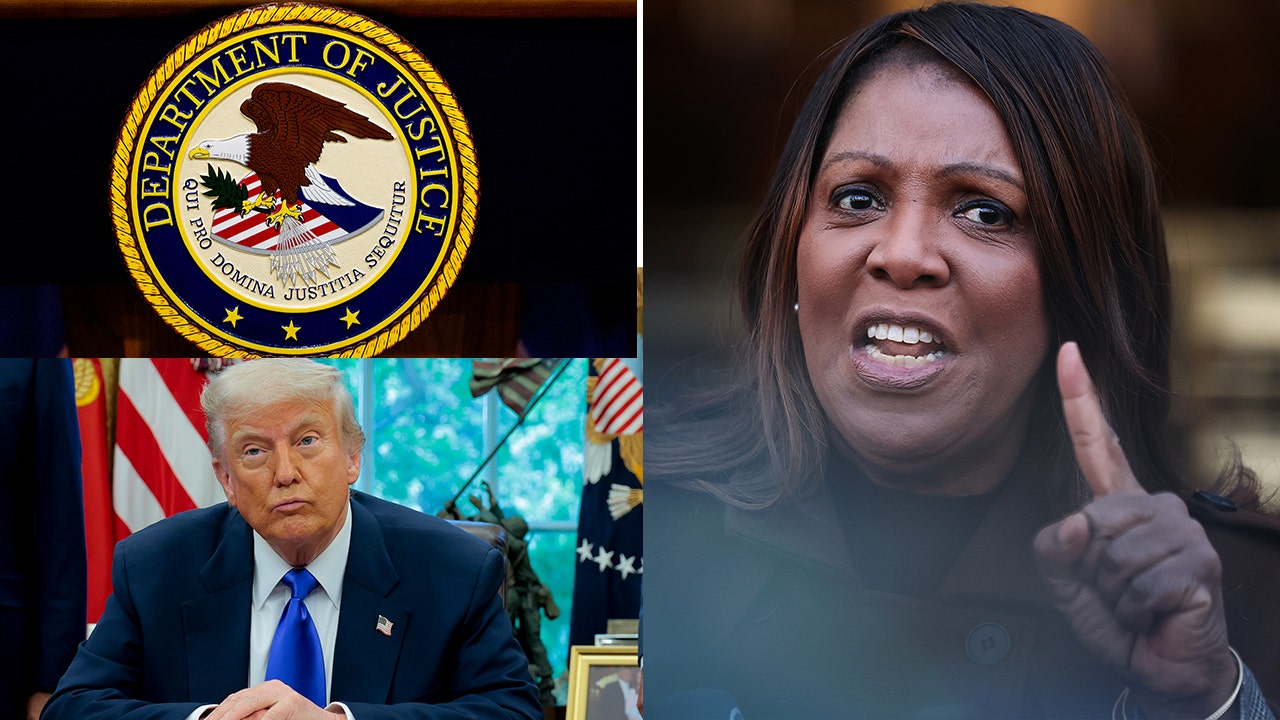
 Politics1 week ago
Politics1 week agoDepartment of Justice opens criminal investigation into NY AG Letitia James
-
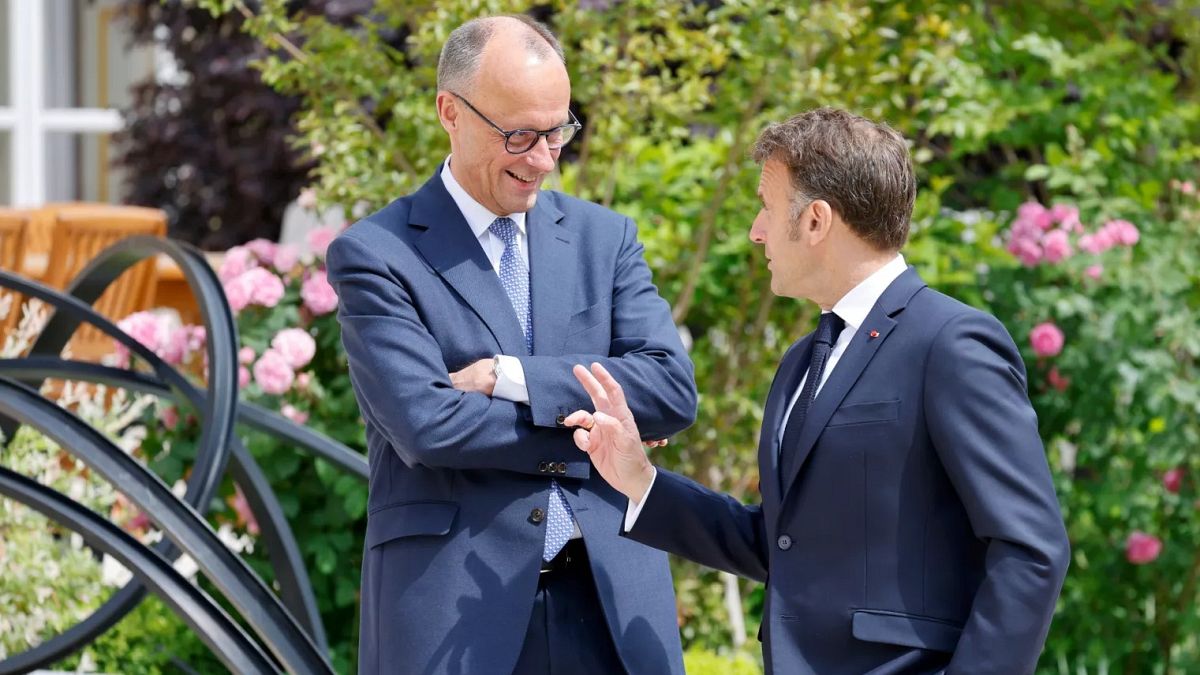
 World1 week ago
World1 week agoNew German chancellor aims for stronger EU ties with France and Poland
-

 News1 week ago
News1 week agoJudge Orders Release of Rumeysa Ozturk, Tufts Student Detained by ICE
-

 Technology1 week ago
Technology1 week agoThe best iPad to buy
